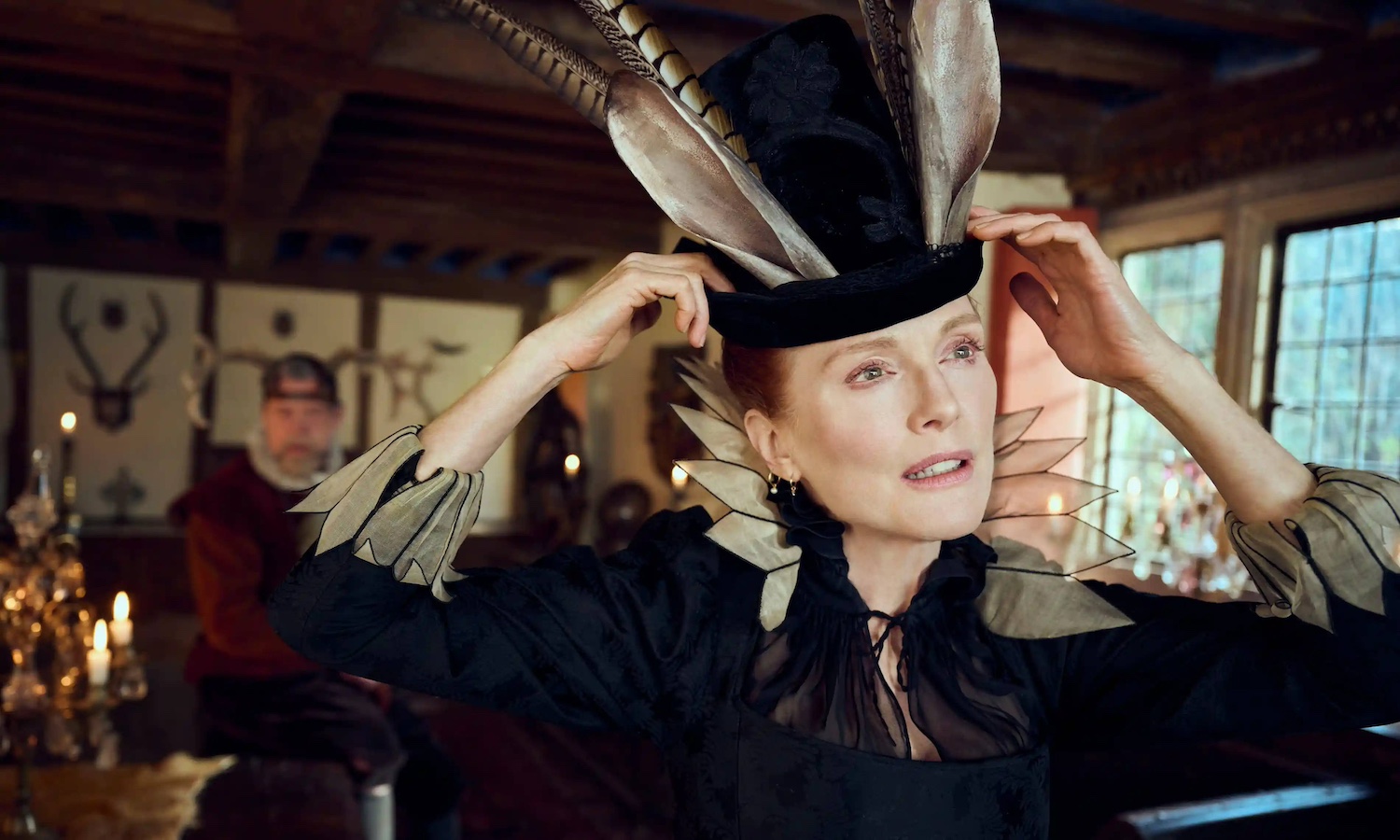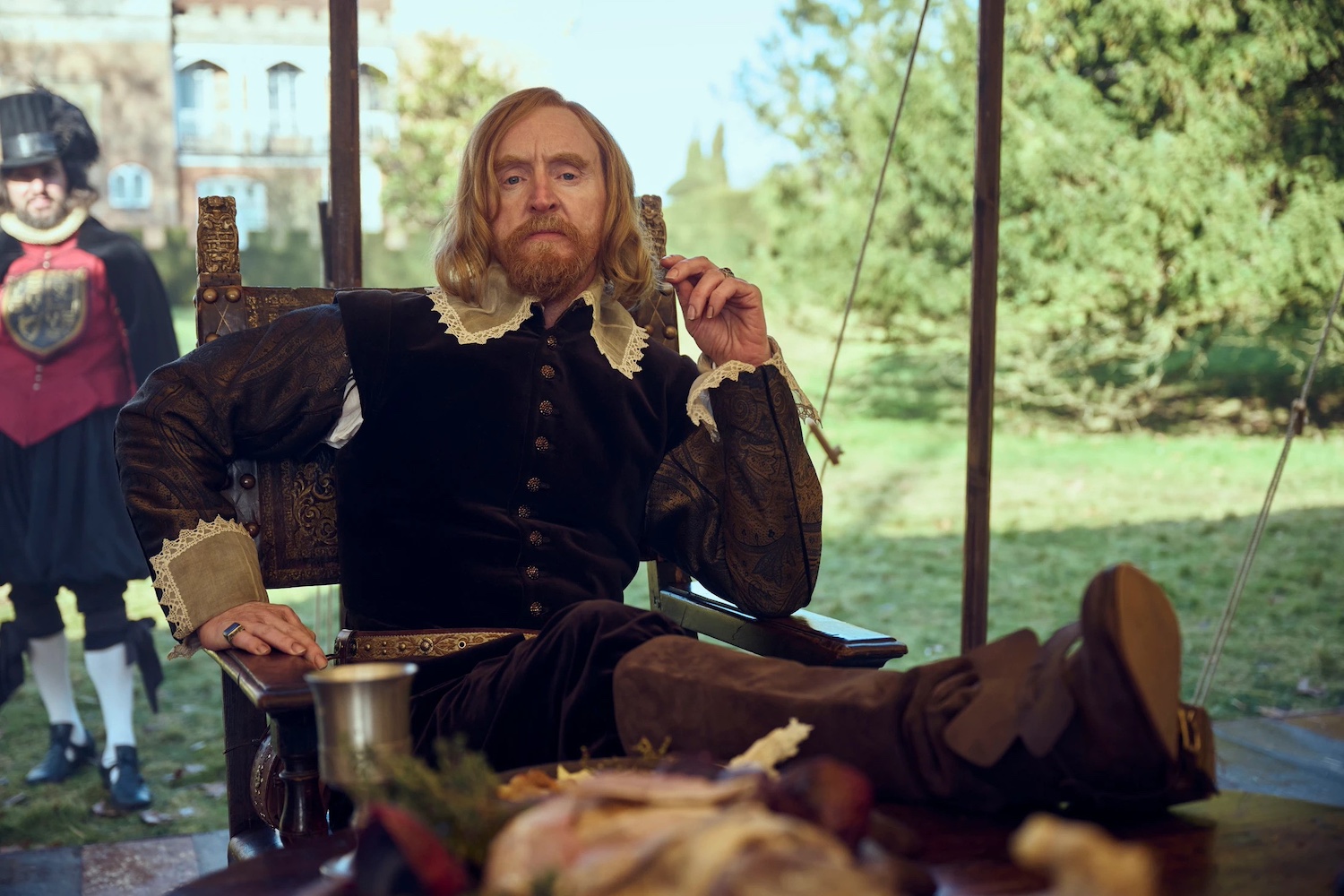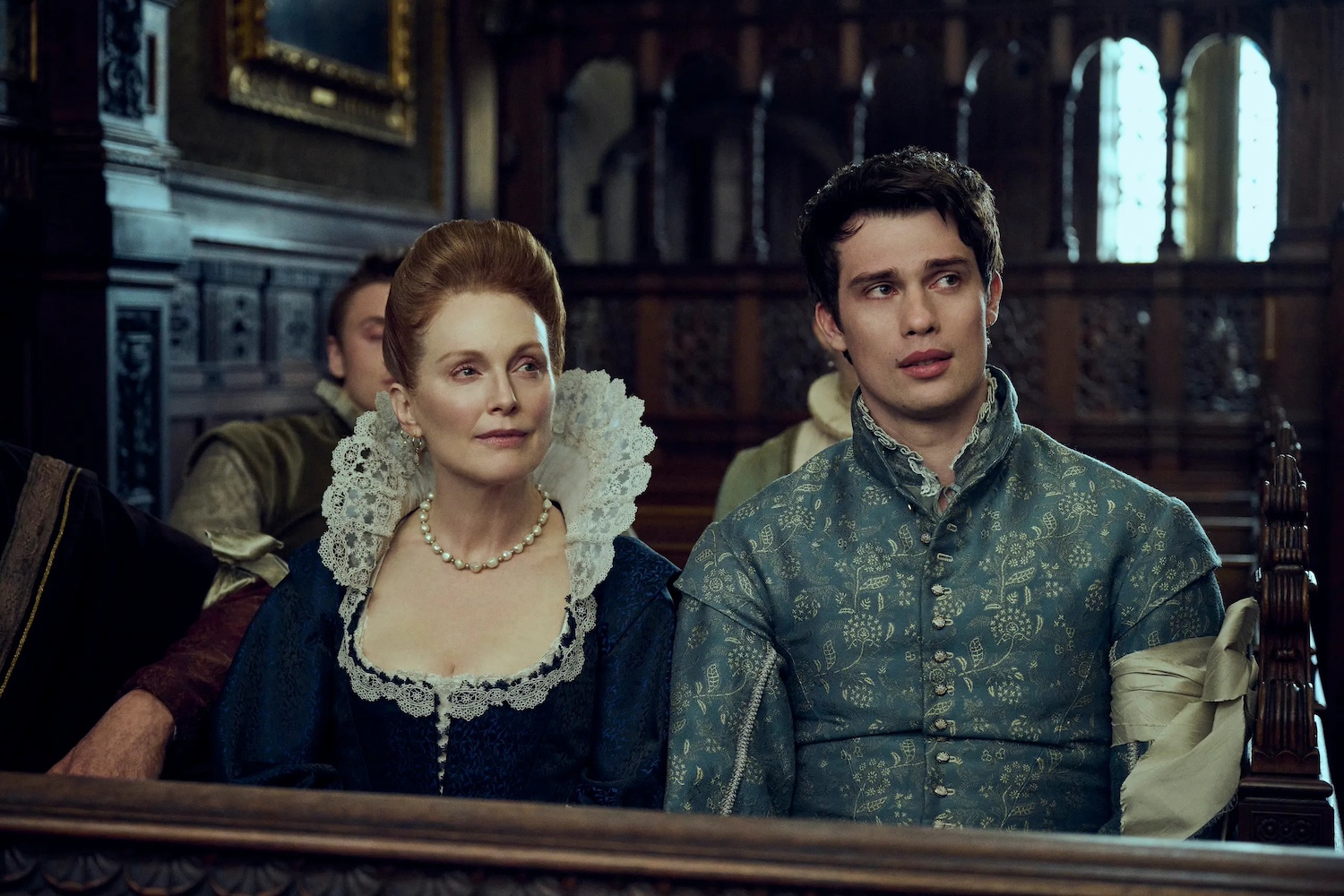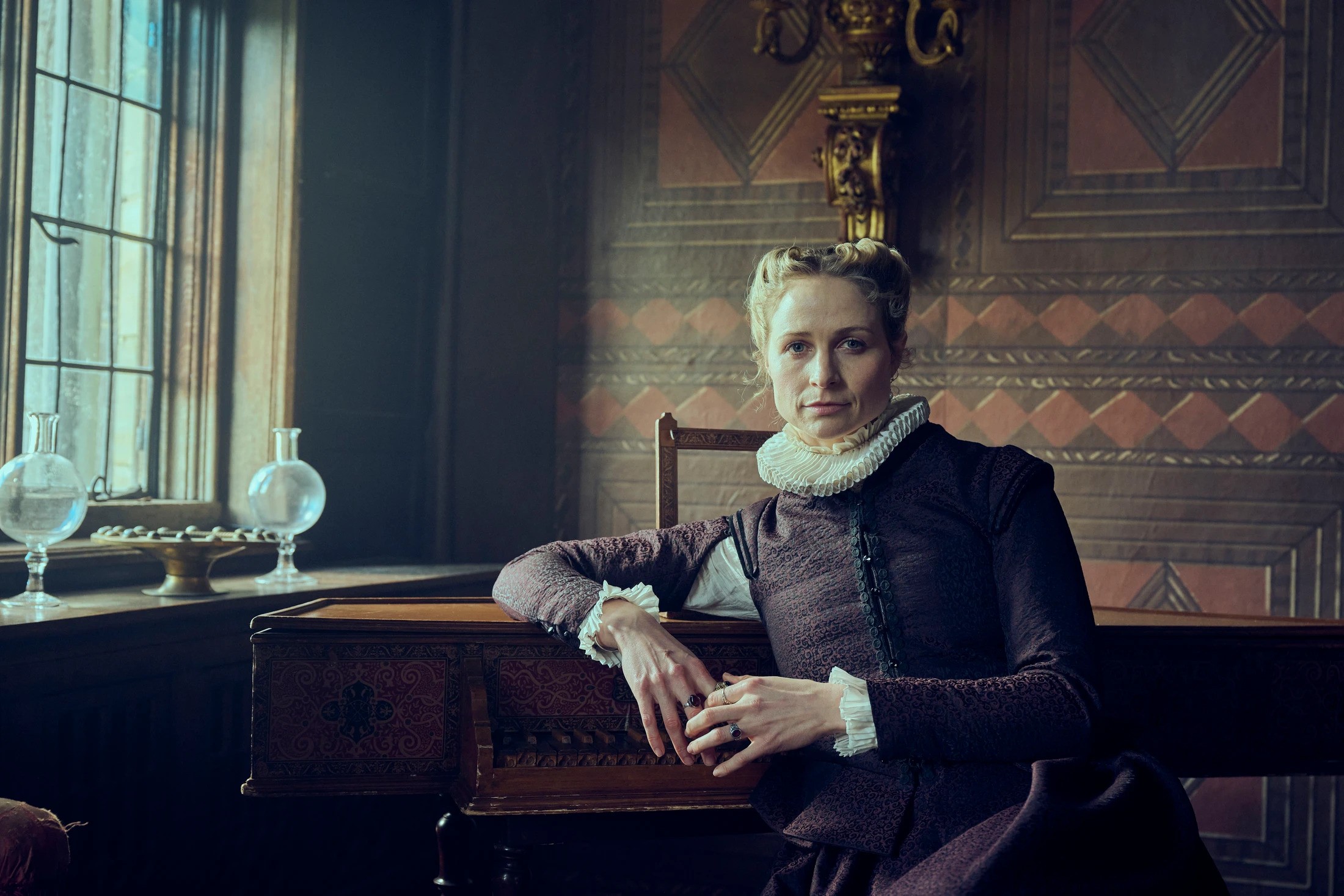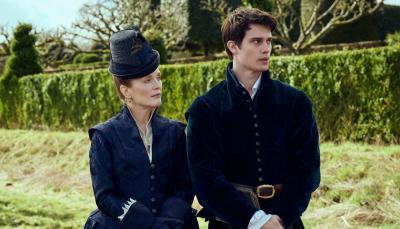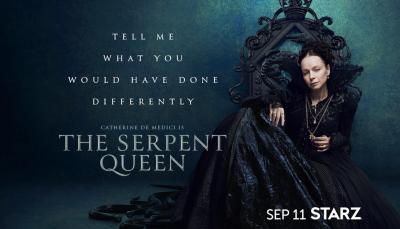'Mary & George' is a Daring, Entertaining & Emotional Historical Drama
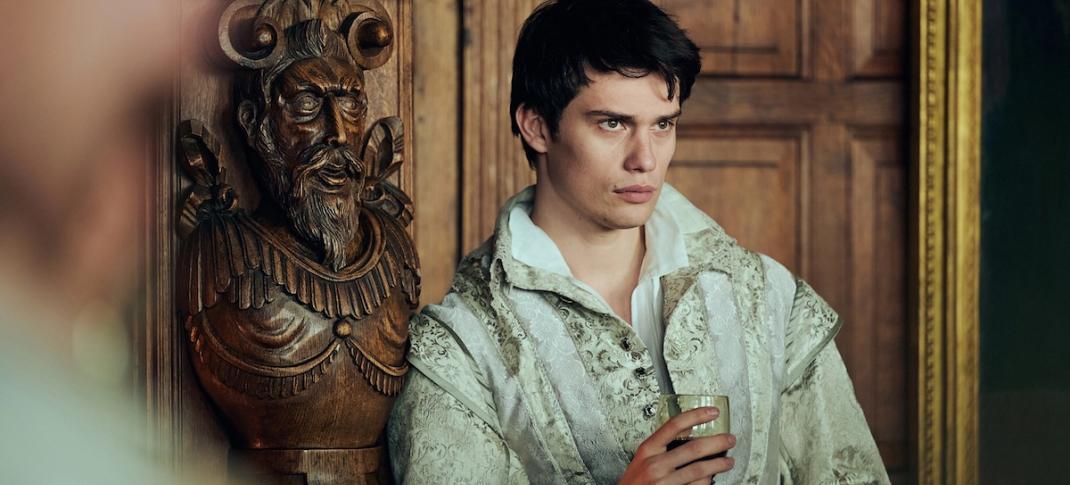
Nicholas Galitzine in "Mary and George"
(Photo: AMC/Sky)
Warning: Mary & George includes explicit sexual scenes, violence including suicide, and adult language.
Mary & George, initially commissioned by AMC Networks in conjunction with Sky, but airing/streaming on Starz, isn’t your typical historical drama. The F-bombs and C-bombs fly like confetti, and there are bare bottoms galore. If you enjoyed films like The Favourite or shows like Starz’s The Serpent Queen, you’ll like Mary & George, but otherwise be warned. It boasts terrific performances by Julianne Moore (May December) as Mary Villiers, Countess of Buckingham, Nicholas Galitzine (Red, White & Royal Blue) as her son George, and Tony Curran (Mayflies, and a memorable Vincent Van Gogh in Doctor Who, Season 5) as James I.
The script by D.C. Moore (Killing Eve) is based on Benjamin Woolley's 2017 biography The King's Assassin: The Secret Plot to Murder James I, and the series is directed by Oliver Hermanus, Alex Winckler, and Florian Coss. The settings are beautiful and intimate, filmed in historic locations, and the costumes, designed by Annie Symons (The Hollow Crown), are spectacular–– brocades, linens, satins, and ruffs, those sexy dangly single earrings the men sport. It’s an era of peacocking display and also a time in which your income, social status, and even character were defined by what you wore.
Mary Villiers, widowed, ambitious, and broke, can only advance her fortunes by marriage, either hers or her children’s. Specifically, she has a plan for her beautiful second son George, by far the best of the crop. His older brother John Villiers (Tom Victor) shows signs of mental illness which Mary attributes to his father’s syphilis, and the others just seem to be very troublesome. For ready money, two weeks after her husband’s death, she proposes marriage (and lots of sex) to the rather jolly Sir Thomas Compton (Sean Gilder) in her first step on a ladder of danger, ambition, and intrigue.
As for George, currently rather gloomy and dull, she plans to send him to France to perfect his education as a courtier with Compton’s money. He hates the idea of leaving his servant girlfriend so much he tries to kill himself. Mary, the mother who was reluctant to cut his umbilical cord at his birth, now has to saw through the rope he’s used to hang himself in protest, and it’s not the first time she’s had to do so. She is very annoyed with him. But in some respects, that umbilical cord is never cut, so close and frankly weird their relationship is.
She packs him off to France, where the aristocrats seem to be enjoying a perpetual orgy, and as well as dancing, fencing, etiquette, and so on, George can explore his sexuality. And this seems as good a time as any for a brief word on Jacobean sexuality. Concepts of privacy, space, and nudity were far removed from ours, and James I of England (also James VI of Scotland) is a mass of contradictions to modern minds. He was fanatically opposed to witches and tobacco; he lent his name to the most famous translation of the Bible, and he was very keen on passing laws against sodomy.
James was openly gender fluid, except that term wasn’t used, and for the most part, the attitude was a shrug and the assertion that “bodies are just bodies.” Everyone knew about the King’s attraction to handsome young men. As the saying goes, “Rex fuit Elizabeth: nunc est regina Jacobus –– Elizabeth was King: now James is Queen.” Gay History and Literature.
He likes pretty young men as much as he likes music and hunting, and besides, he is God’s anointed: he is massively entitled, having been King of Scotland since infancy before ascending the English throne. At this point in his life, he and his wife Anne of Denmark (Trine Dyrholm) have children, he’s survived murder attempts like the Guy Fawkes plot, his dynasty is secure, and he now wants to enjoy himself in a court of “peace and play.” It was common knowledge that the King had an eye that was not so much wandering as rampaging.
George returns from France, elegant, cultured, and assured, a master of all the courtly arts and ready for plucking. His tireless mother has arranged for him to be a cupbearer, at a house where the King and court are to dine. It is one of those highly desired sinecure positions the aristocracy used to form alliances and request or receive favors. (Mary herself was “in service” at one point, which was not, as the series suggests, a shameful secret.) Tripped up by a jealous fellow server, George retaliates by hitting him, giving the King’s current favorite, Robert Carr, Earl of Somerset (Laurie Davidson), the excuse to cut off his hand. The King won’t allow him to do it, and Somerset achieves the opposite of what he intended, which is to direct the King’s attention even more to the handsome newcomer.
George is fired, but it’s not the end of Mary’s plans. She makes an ally of English courtier Sir David Graham (Angus Wright), who is anxious to see more English gentlemen in positions of power instead of “that surly sodomite Somerset and his Scottish semen guzzlers.” All of the Gentlemen of the Bedchamber are Scottish (and, need we say it, young and handsome), and Mary’s goal is to get George into this elite group that exercises enormous power over the King. It’s a world where alliances and loyalties change and break, and Mary, intelligent, determined, and a born strategist, plays the court like a pro. She becomes an ally to the Queen, who has a well-known dislike of Southampton and would far rather see George as a favorite.
Somerset, apparently only just a pretty face, makes the mistake of trying to hurt or even kill George by staging a hunting accident. The King comes to the rescue, and a romantic courtship and its consummation ensue. Despite the bare bottoms and rampant sexuality –– the series’ intimacy coordinator had to draw diagrams for the orgy scenes –– this is a love story, and Curran reveals his tender and loving side.
It’s not quite rom-com territory, but he and Galitzine exchange witticisms as well as kisses, bicker, and makeup. Galitzine can certainly do adorable, and he does it here. But you know things are going to change. For one thing, James is wacko. He has no boundaries, and he is uninhibited, promiscuous, and unpredictable. You can’t call him out, because he’s the King. Yet he’s deeply emotional. He trusts George with intimate secrets, telling him the story of a former lover who gave him his heart (literally. Eww). They bury the embalmed heart together, which is as good a way as any of putting the affair to rest. George has transformed, and he will continue to do so.
Naturally, he makes some mistakes along the way. When George is invited to join the Privy Council, he makes the mistake of sympathizing with Sir Walter Raleigh (Joseph Mawle, Game of Thrones). Once one of Elizabeth I’s favorites, he is now out of favor with the new regime, and James is furious at George’s well-meant intervention.
Despite Moore’s assured, pitch-perfect performance, Mary remains a cipher. She pursues her goal of elevating her family’s rank and wealth, not realizing that her relationship with her favorite son may change. When George is knighted, and then a few years on, made the Duke of Buckingham, you’d think her ambition would be fulfilled. But she is driven, and her ambition and lack of scruples begin to break the relationship with her son. She constructs an elaborate plot to marry her damaged son John off to the daughter of Sir Edward Coke (Adrian Rawlins), who is quite keen on the idea. However, his wife, Lady Hatton (Nicola Walker), already on the outs with Mary, opposes it. Mary needs Coke, a barrister, judge, politician, and an influential member of the Privy Council, on her side, and marriage will create that alliance. It will also strengthen Coke against his rival, Sir Francis Bacon (Mark O’Halloran), Lord High Chancellor, a former friend of George.
Mary also forms an unlikely alliance with Sandie Brooks (Niamh Algar), a prostitute she meets in a brothel (Mary is there for a secret meeting with Sir David Graham). They become lovers, and Mary surrenders herself to warmth and intimacy, allowing herself to shed the autocratic front she presents to the world. Yet Sandie becomes her accomplice, another person to be used and, possibly, discarded.
As Duke of Buckingham, George is one of the most powerful men in England, and he becomes more serious and ambitious and less inclined to follow his mother’s wishes. In the upper echelons of the court, and as James ages, George becomes involved in diplomatic negotiations with the Spanish over a marriage between their dynasty and Prince Charles (later Charles I). The series becomes darker and more serious, and George reveals he has inherited his mother’s ruthlessness in ridding himself of enemies and former friends. The emphasis on sex and relationships tapers off somewhat as the series, but there’s still plenty to watch and marvel at in Mary & George.
Mary & George streams new episodes on Starz weekly, each Friday through May 2024.

